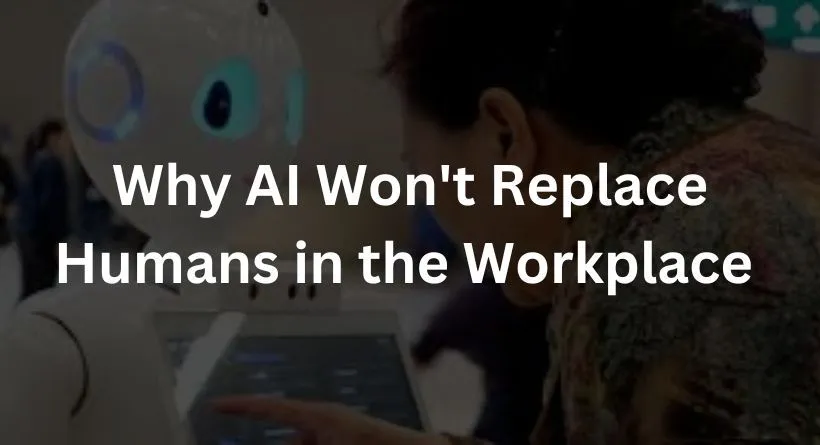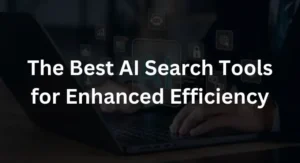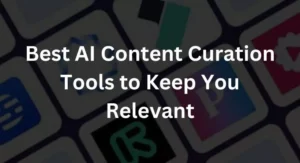
Artificial intelligence (AI) has undoubtedly made significant strides in revolutionizing the workplace. However, there are concerns about the possibility of AI replacing human jobs. While AI is capable of automating certain tasks, several factors ensure that humans will remain an integral part of the workforce. In this article, we will explore why AI won’t be taking over human jobs anytime soon and how to guarantee it doesn’t.
1. Humans Excel at Grasping Context

One of the primary reasons why AI won’t replace humans in the workforce is our innate ability to understand context. Humans possess a profound level of cognitive sophistication that allows them to consider the intricate nuances contributing to a particular situation. This capacity to incorporate multiple elements stems from our deep experience with the world’s complexities. Humans can identify patterns, assess situational risks and rewards accurately, and use this insight to make sound decisions. AI, on the other hand, lacks the comprehension necessary to process contextual information systematically due to its limited understanding of life’s complexity and ever-shifting conditions.
You may also like reading: Will AI Replace Humans? The Impact of Artificial Intelligence on the Human World
2. Jobs Requiring Social Interaction and Creativity
While AI has made great strides in replicating various human actions and processes, it falls short in replacing humans, especially in roles demanding social interaction, empathy, understanding, and creativity. Professions like teaching, counselling, and nursing rely on individuals to pick up on subtle cues, respond to unique scenarios, and provide appropriate responses. AI may streamline aspects of these jobs but cannot match the specific skills that humans bring to these roles.
3. Ethical Concerns Surrounding AI
Ethical considerations play a crucial role in the debate about AI replacing human jobs. Many experts in the field of Artificial Intelligence are concerned about how AI could be misused and its potential implications for society. There are concerns that AI could be employed to manipulate emotions and create false news stories, as well as unfairly target certain groups of people. For instance, using automated algorithms in hiring or firing decisions can eliminate bias, but it can also lead to discrimination against specific groups. As a result, many organizations are cautious about using AI in their operations.
4. Jobs Created by AI

Despite the progress in AI technology, human labour remains indispensable in our economy and society. While some jobs may become automated, this transition will likely take longer than anticipated. Additionally, as AI technology evolves, new roles and responsibilities will emerge to manage, monitor, and maintain this technology. This includes roles for ethical oversight, development support, deployment, and analysis of AI systems. The demand for AI-related skills may lead to new job opportunities, ensuring that humans can find meaningful work in the technology industry.
Ensuring Fair Distribution of Benefits
It’s essential to remember that AI, while not replacing humans in the workplace, can reduce labour costs for companies, potentially leading to fewer job opportunities unless steps are taken to ensure a fair distribution of AI’s benefits. Responsible automation practices, such as training existing employees in using new technology and sharing automation profits with displaced workers, can help mitigate these challenges. Promoting educational opportunities, such as skills-training courses and workshops, can empower individuals to participate in the AI field, ensuring that everyone benefits from responsible automation without sacrificing job security or quality of life.
Conclusion
In conclusion, AI may be transforming the workplace, but it won’t replace humans anytime soon. Humans excel at understanding context, and certain jobs require social interaction and creativity that AI cannot replicate. Ethical concerns also play a significant role in ensuring that AI is used responsibly. While some jobs may be automated, new opportunities in the technology industry will emerge, and it’s crucial to ensure a fair distribution of AI’s benefits to maintain job security and quality of life.
FAQs
1. Can AI completely replace human jobs in the future?
AI has the potential to automate some tasks, but it is unlikely to entirely replace human jobs due to the complexities of human skills and ethical considerations.
2. What are some examples of jobs that AI cannot replace?
Jobs that involve social interaction, empathy, creativity, and complex decision-making, such as counselling, teaching, and nursing, are less likely to be replaced by AI.
3. What ethical concerns are associated with AI in the workplace?
Ethical concerns include potential misuse of AI to manipulate emotions, create false information, and unfairly target certain groups. Additionally, automated algorithms in decision-making may lead to bias.
4. Will AI create job opportunities in the future?
Yes, as AI technology evolves, new roles related to AI oversight, development, deployment, and analysis will be created, offering job opportunities for humans.
5. How can we ensure fair distribution of AI’s benefits in the workplace?
Fair distribution can be achieved through responsible automation practices, such as training employees in AI technology and sharing automation profits with displaced workers, along with promoting educational opportunities in AI-related fields.





